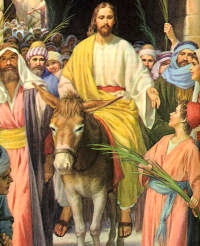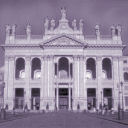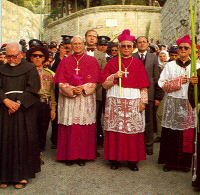
Pope: St Teresa of Avila is primarily a teacher of prayer - Independent Catholic News
| Pope: St Teresa of Avila is primarily a teacher of prayer | ||
| Posted: Monday, March 30, 2015 8:10 am | ||
| ||
| ||
|

| Pope: St Teresa of Avila is primarily a teacher of prayer | ||
| Posted: Monday, March 30, 2015 8:10 am | ||
| ||
| ||
Pilgrimage to celebrate the 500th anniversary of St. Teresa of Avila's birth unveiled
527 views
Published on 13 Nov 2014
Click here to receive the latest news: http://smarturl.it/RomeReports
Visit or website to learn more: http://www.romereports.com/ www.youtube.com/watch?v=PMOr6EeqYm4 Saint Teresa of Avila is one of the most influential women in the history of the Catholic Church. --------------------- ROME REPORTS, www.romereports.com, is an independent international TV News Agency based in Rome covering the activity of the Pope, the life of the Vatican and current social, cultural and religious debates. Reporting on the Catholic Church requires proximity to the source, in-depth knowledge of the Institution, and a high standard of creativity and technical excellence. https://www.youtube.com/watch?v=PMOr6EeqYm4 As few broadcasters have a permanent correspondent in Rome, ROME REPORTS is geared to inform the public and meet the needs of television broadcasting companies around the world through daily news packages, weekly newsprograms and documentaries. --------------------- |
 |
| Palm Sunday; Hosanna Sunday |
 Lent Stational Church
Lent Stational Church The priests and deacons wear red vestments for Mass. There is a special entrance at the beginning of each Mass, either simple or solemn. This includes a blessing of the palms and the gospel reading of the entrance into Jerusalem (Matt 21:1-11; Mark 11:1-10; John 12:12-16; Luke 19:28-40). The introduction by the priest explains the solemnity of Holy Week, and invites the faithful to take full part in the celebration:
The priests and deacons wear red vestments for Mass. There is a special entrance at the beginning of each Mass, either simple or solemn. This includes a blessing of the palms and the gospel reading of the entrance into Jerusalem (Matt 21:1-11; Mark 11:1-10; John 12:12-16; Luke 19:28-40). The introduction by the priest explains the solemnity of Holy Week, and invites the faithful to take full part in the celebration:Dear friends in Christ, for five weeks of Lent we have been preparing, by works of charity and self-sacrifice, for the celebration of our Lord's paschal mystery. Today we come together to begin this solemn celebration in union with the whole Church throughout the world. Christ entered in triumph into his own city, to complete his work as our Messiah: to suffer, to die, and to rise again. Let us remember with devotion this entry which began his saving work and follow him with a lively faith. United with him in his suffering on the cross, may we share his resurrection and new life.
Almighty God, we pray you bless these branches and make them holy. Today we joyfully acclaim Jesus our Messiah and King. May we reach one day the happiness of the new and everlasting Jerusalem by faithfully following him who lives and reigns for ever and ever. Amen.
Hosanna to the Son of David, the King of Israel.
Blessed is he who comes in the name of the Lord.
Hosanna in the highest.
 |
Some
Greeks Wish to See Jesus
20 Now
among those who went up to worship at the festival were some Greeks. 21 They
came to Philip, who was from Bethsaida in Galilee, and said to him, “Sir, we
wish to see Jesus.” 22 Philip went and told Andrew;
then Andrew and Philip went and told Jesus. 23 Jesus answered them, “The hour has come for the Son of Man
to be glorified. 24 Very truly, I tell you, unless
a grain of wheat falls into the earth and dies, it remains just a single grain;
but if it dies, it bears much fruit. 25 Those who love their life lose
it, and those who hate their life in this world will keep it for eternal life. 26 Whoever serves me must follow
me, and where I am, there will my servant be also. Whoever serves me, the
Father will honor.
Jesus Speaks about His Death
27 “Now my soul is troubled. And
what should I say—‘Father, save me from this hour’? No, it is for this reason
that I have come to this hour. 28 Father, glorify your name.” Then a voice came from heaven, “I have glorified it, and I will
glorify it again.” 29 The crowd standing there
heard it and said that it was thunder. Others said, “An angel has spoken to
him.” 30 Jesus answered, “This voice has come for your sake, not
for mine. 31 Now is the judgment of this
world; now the ruler of this world will be driven out. 32 And I, when I am lifted up from
the earth, will draw all people to myself.” 33 He
said this to indicate the kind of death he was to die.
+++++++++++++++++++++++++++++++++
|